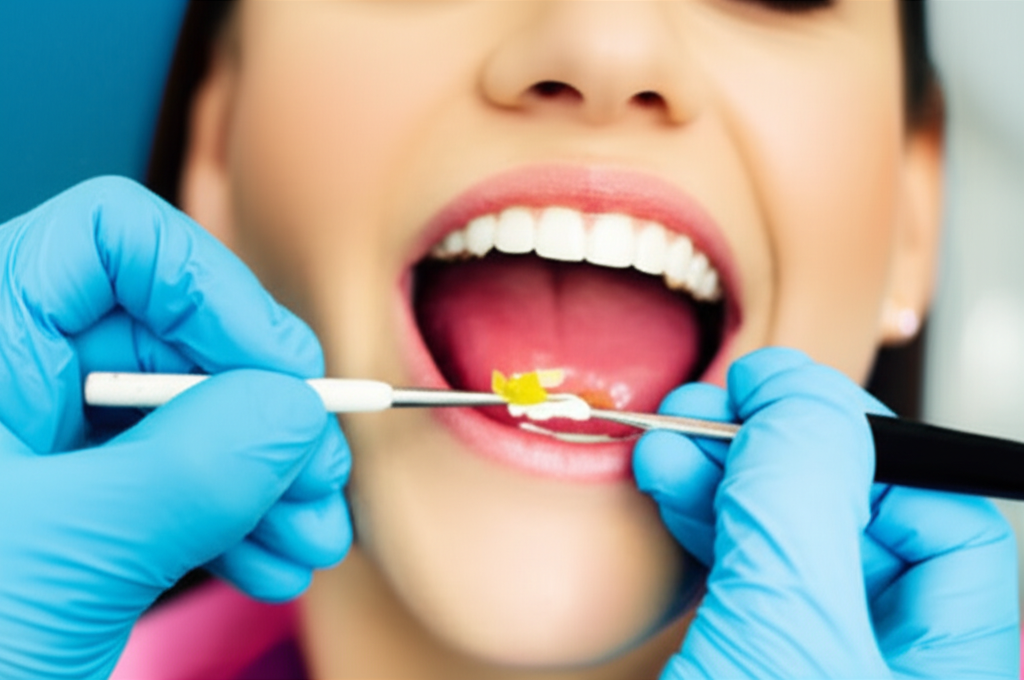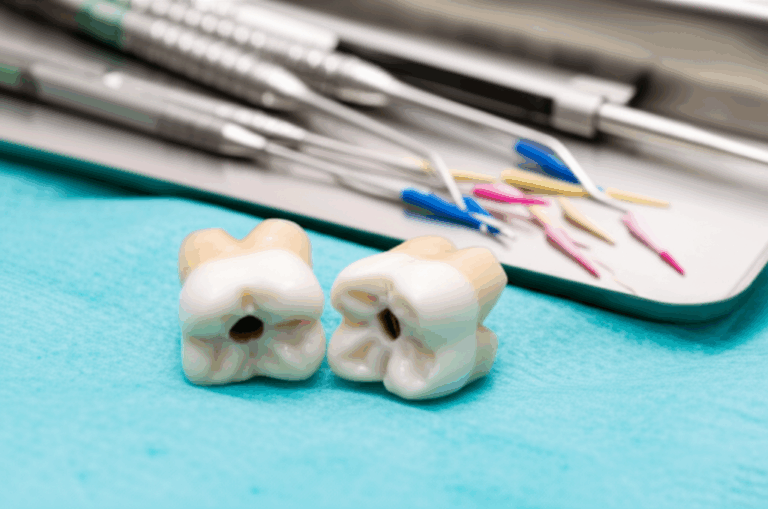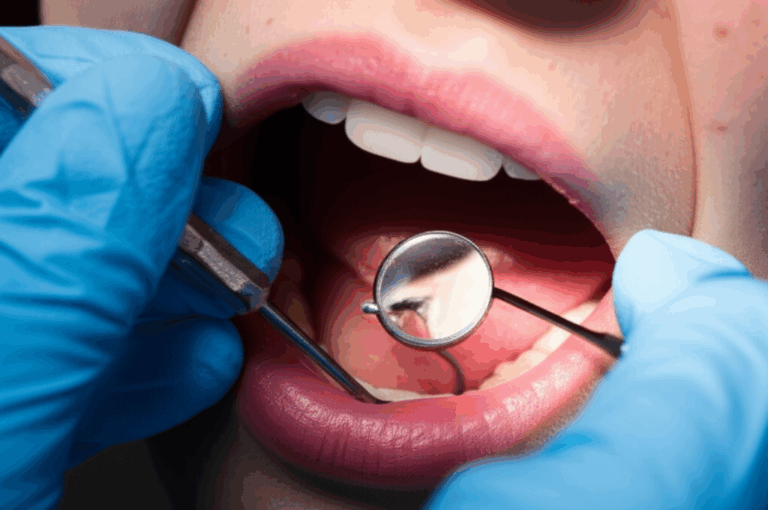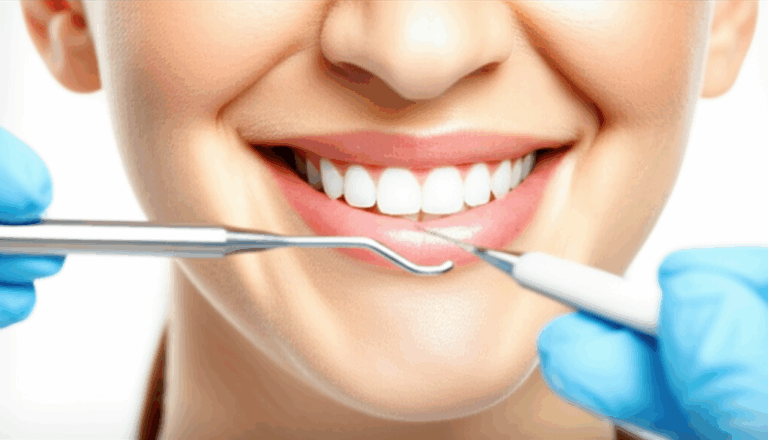
Is Fluoride at the Dentist Worth It? A Simple, Friendly, Science-Based Guide
Have you ever noticed that extra step at the end of your dental cleaning—the dentist or hygienist painting, swabbing, or pressing something onto your teeth—and wondered, “Is fluoride at the dentist really worth it?” Maybe your friends have different opinions or you’ve seen debates online. Maybe you’re wondering if it’s really needed, if it’s safe, or if the cost is worth it for you or your family.
If you’re thinking about these questions, you’re not alone. Tons of people wonder the same thing every time they get in the dental chair. Let’s break down the facts and help you decide what’s actually helpful for your smile (and your budget), using easy words, real facts, and some caring advice.
In This Article
- What Is Professional Fluoride Treatment?
- How Does Fluoride Work? The Simple Science
- What Are the Benefits of Professional Fluoride?
- Who Should Consider Fluoride at the Dentist?
- What to Expect During a Fluoride Application
- Addressing Concerns: Cost, Safety, and Misconceptions
- Professional vs. At-Home Fluoride: What’s the Difference?
- Smart Dental Habits to Support Your Smile
- The Bottom Line: Is It Worth It for You?
- Frequently Asked Questions
What Is Professional Fluoride Treatment?
Let’s start at the beginning. When your dentist or hygienist gives you a fluoride treatment at the end of your cleaning, they’re putting extra protection on your teeth. This treatment is a quick swipe of strong fluoride gel, foam, or varnish—way stronger than what you get in regular toothpaste or mouthwash. It only takes a few minutes, but it can help your teeth for months.
Fluoride is a mineral that exists in nature. Since about the 1940s, research has shown it makes teeth much tougher against getting cavities. Dentists use it as a main way to protect your teeth—like a see-through shield that covers and builds up your tooth’s hard outside (the enamel).
But do you really need it? Is it just something extra, or does it help? The answer is: it depends on you, but for a lot of people—especially children, teenagers, and anyone who often gets cavities—it’s a cheap, safe, and really helpful way to prevent problems.
How Does Fluoride Work? The Simple Science
Here’s a little tooth science—don’t worry, it’s easy!
The Battle in Your Mouth: Losing and Gaining Minerals
Each day, your teeth go through a kind of tug-of-war. The foods and drinks you eat, especially sweet and sour stuff, feed the bacteria in your mouth. These bacteria in plaque make acids that eat away minerals from your enamel—this is called losing minerals, or demineralization. This weakens your teeth and can cause cavities.
Luckily, your spit and healthy foods help fix this by putting minerals back—called remineralization. This is where fluoride steps up to help:
- Makes a super-strong crystal called fluorapatite on your teeth, which doesn’t melt from acid so easily.
- Helps block acid production by bacteria, making it harder for cavities to start.
- Speeds up fixing weak spots, helping your teeth heal before a real cavity forms.
In short, dentist fluoride treatments “patch up your tooth armor” before little weak spots become big trouble.
What Are the Benefits of Professional Fluoride?
So, what do you actually get from getting fluoride at the dentist? Here’s why it’s useful:
1. Much Fewer Cavities
It’s not just talk. A big review in 2019 said that dentist-applied fluoride varnish can cut cavities in kids’ baby teeth by 37% and in adult teeth by 43%. Adults who get a lot of cavities (like older folks, people with lots of fillings, or those with dry mouth) can see a 20-40% drop in new cavities, says the American Dental Association.
That’s a big difference. If you have fewer cavities, you’ll need less drilling, less pain, and spend less on fillings.
2. Stops Early Tooth Decay
Seeing white spots near your gums or between your teeth? That’s an early warning sign your enamel is losing minerals. Dentist fluoride can often stop these spots and help your teeth fix themselves—so you might not even need a filling.
3. Helps Sensitive Teeth
If you’ve ever gotten a little shock from ice cream or hot coffee, you know tooth sensitivity hurts. Stronger fluoride plugs up small holes in your teeth that cause that sharp feeling, and it works faster and lasts longer than stuff from the store.
4. Protects Against Wearing Away
People with regular heartburn (acid reflux), those who use tooth bleaching products, or anyone who often drinks soda or sports drinks are at higher risk for tooth surfaces getting worn down. Fluoride makes your enamel tougher for the long run.
5. Saves You Money
Fluoride treatments from your dentist usually cost $20-50. A filling can cost $150-300 or more (and crowns or root canals are even more). If fluoride keeps you from getting just one cavity, it pays for itself and then some.
Who Should Consider Fluoride at the Dentist?
No two people have the same mouth. Here’s who benefits the most from dentist fluoride:
A. Kids and Teenagers
Kids and teens get cavities easier. Their enamel is still growing strong, they eat more sugar, and they’re still learning to brush and floss the right way. For them, fluoride treatments are the gold standard—insurance usually pays for them up to age 18.
B. Adults Who Get Cavities Easily
Some things make it much easier to get new cavities. Think about getting dentist fluoride if you have:
- Dry mouth (not enough spit): This can be from medicine, sickness, or being older, and it makes cavities much more likely.
- Gums pulling back showing roots: Roots don’t have enamel like the rest of the tooth, so they’re weaker.
- More than a couple recent fillings: If you’re getting lots of new fillings, your risk is real.
- Braces: Braces make cleaning your teeth harder.
- Lots of sugar or not so great with brushing/flossing: Even the best dentist can’t beat too much candy and not enough brushing.
- Health problems or disabilities that make it harder to brush or have enough spit.
C. People With Special Tooth Needs
- Tooth sensitivity
- Teeth that are naturally weaker
- Homes with well water or non-fluoridated water
D. Not Everyone Needs It—And That’s Fine
If you’re an adult with a low risk of cavities—healthy gums, no new cavities lately, good brushing, and you drink fluoridated water—your dentist might skip the extra fluoride. The important part is deciding together with your dental team.
What to Expect During a Fluoride Application
Big bonus: Fluoride treatments are fast and painless.
Types of Dentist Fluoride
All these types use more fluoride than what you can buy at the store.
How It’s Done
- Takes just a few minutes.
- No pain, no needles—just a brush, tray, or swab and that’s it.
- You’ll probably be told not to eat or drink for 30 minutes after, so the fluoride can work.
What to Do After
- Don’t eat hard, crunchy stuff or drink hot foods for a few hours.
- Wait at least 30 minutes (as told) before eating or drinking.
- Brush and floss like normal later—no special tricks needed.
Addressing Concerns: Cost, Safety, and Misunderstandings
Let’s clear up a few common worries. This isn’t to “sell” you on fluoride, just to give you straight facts.
Is Professional Fluoride Expensive?
Usually, getting fluoride at the dentist costs $20-50. Most dental insurance covers it for kids and teens, and these days more plans pay for adults who get more cavities. If you don’t have insurance, ask if they have discounts for preventive care.
Bottom line: Even with no insurance, it’s cheaper than a filling or anything more serious.
Is It Safe? Is Fluoride Dangerous?
Fluoride, when used like your dentist says, is very safe. The dentist puts just the right amount, and it goes on your teeth—not in your tummy. The risk of “fluorosis” (white lines on teeth) is basically zero for adults and very low for kids, as long as you do what the dentist says.
Scared about “fluoride poisoning”? That almost never happens unless someone eats a ton of toothpaste—getting fluoride at the dentist won’t do this.
If you prefer natural stuff, there are fluoride-free ideas, but most studies show fluoride on your teeth is safe and works really well.
Do I Need Dentist Fluoride If I Already Use Fluoride Toothpaste?
Brushing with fluoride toothpaste every day is super important—don’t skip it!—but the dentist uses a much higher strength right where you need it. Think of it like putting a topcoat on your car’s paint: it’s extra protection.
Are There Any Downsides?
Rarely, someone might taste something odd or feel a tiny bit of gum irritation. Allergic reactions are very rare—always tell your dentist about any allergies.
Professional vs. At-Home Fluoride: What’s the Difference?
You might wonder, “Can’t I just use stronger mouthwash or special toothpaste at home?”
Dentist Treatments
- Way more fluoride than home stuff.
- Put on carefully by the dental staff.
- Only need it a few times a year—usually at your checkup.
- Especially good for high-risk spots or stopping problems early.
Home Products
- Fluoride toothpaste is a must for everyone.
- Fluoride rinses and gels you buy are useful, but not as strong.
- Good every day, but might not be enough if you get cavities a lot.
Sometimes your dentist will want you to use both: daily fluoride at home plus their stronger treatment every checkup.
Smart Dental Habits to Support Your Smile
Even dentist fluoride doesn’t mean you can eat candy all day. The healthiest smiles use a mix of prevention and good daily habits. Here’s a quick to-do list:
- Brush twice a day with fluoride toothpaste (look for the ADA Seal).
- Floss every day to get between the teeth.
- Visit your dentist regularly for cleanings and checkups.
- Ask about dental sealants—these cover the back teeth and help stop cavities, good for kids and adults who get cavities a lot.
- Cut down on sugary and sour drinks (like juice, soda, and sports drinks).
- Look for foods or gum with xylitol, which helps protect teeth.
- Ask your dentist or hygienist if you should get dentist fluoride—especially if you have any “high risk” stuff mentioned above.
Want to learn more about how other preventive dental services help your teeth? Curious about how digital technology in a digital dental lab helps your care? Explore how dentist services can fit all your needs.
The Bottom Line: Is It Worth It for You?
Here’s the honest answer: for most people who often get cavities or have weaker enamel, dentist fluoride treatments are definitely worth it. Tons of research from groups like the ADA, CDC, and WHO show it prevents cavities, turns early problems around, saves you money, and keeps you away from pain in the long run.
But your mouth isn’t the same as anyone else’s. What’s best is talking with your dentist or hygienist about what you do, your health, and your own risks.
When you see your dentist, ask:
- Am I more likely to get cavities?
- Have I gotten new fillings lately?
- Do I have dry mouth, braces, or roots showing?
- Do I drink tap water without fluoride, or mostly bottled water?
If you answer “yes” to any, getting dentist fluoride probably makes sense for you. If not, great home care might be enough.
A caring, honest dentist will help you think about the pros, cons, and cost. Remember, you only get one set of adult teeth—small steps to stop problems early really add up.
Frequently Asked Questions
How much does dentist fluoride cost, and is it covered by insurance?
Most dental insurance plans pay for fluoride for kids and teens (sometimes all of it), and more plans will pay for adults who need it. Without insurance, it’s usually $20 to $50—a lot less than dealing with cavities. Ask your dentist or check your plan.
Are dentist fluoride treatments safe for kids and pregnant women?
Yes! Dentists use a small amount, and it’s safe for almost everyone—including kids and pregnant women. The problems you see talked about online come from swallowing too much, not from the little bit the dentist puts on your teeth.
What if my family drinks fluoridated water? Do we still need dentist fluoride?
Fluoridated water is great, but dentist treatments add even more protection for people with higher risk (like kids, braces, or dry mouth). Your dentist can help you decide if you need both.
Can fluoride treatments “overdose” me on fluoride?
In normal care, not likely. Dentists use the right amount for your size and needs. Swallowing lots of toothpaste can hurt a child (so watch them brushing), but at the dentist, the amount is very safe.
Are there natural alternatives to fluoride?
Some people look for special mineral pastes or xylitol, but none work as well as fluoride for stopping cavities. If you want to use something else, talk about it with your dental team.
Healthy Takeaways
Let’s wrap up with the highlights:
Dentist fluoride treatments:
- Are safe, fast, and don’t hurt.
- Cut cavity risk a lot for kids and adults.
- Give extra help to those with braces, dry mouth, weak teeth, or who eat more sugar.
- Can cost less than a single filling, saving you money.
- Work best when combined with brushing, good food choices, and smart habits.
Your next move: Have an honest chat with your dentist about your risk. There’s no “one size fits all,” but proven prevention and a caring dentist are always the best.
Keep Exploring Preventive Dental Care
Looking for more info about protecting your teeth? Learn about new technology from a china dental lab or see how a removable denture lab can help with missing teeth.
Healthy teeth start with knowing your options—and a little prevention. Don’t hesitate to ask your dentist what’s really right for your teeth.
Still have questions? Ask your dentist at your next visit, or look for more easy, science-based dental guides. Remember: protecting your teeth means saving money, staying comfortable, and feeling good every day. And that’s something worth smiling about.








